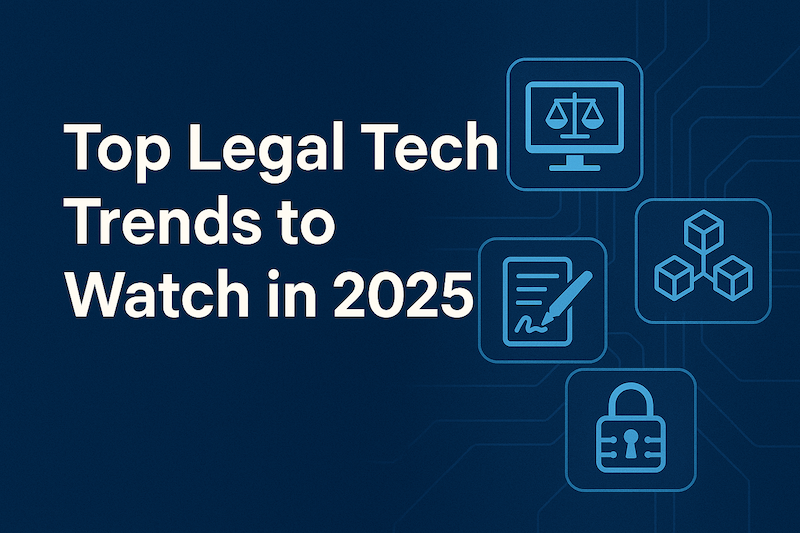
As we step into 2025, the legal industry is undergoing a digital transformation like never before. From AI-powered legal research to blockchain-based contracts, legal tech trends are reshaping the way law firms operate, deliver services, and interact with clients. Staying ahead of these changes is not just an advantage—it’s essential for survival and success in the modern legal landscape.
Whether you’re a legal practitioner, tech provider, or law firm innovator, understanding the top legal technology 2025 trends will keep you competitive and forward-thinking.
AI and Generative Legal Assistants Go Mainstream
In 2025, AI in legal technology is no longer experimental—it’s foundational. Generative AI tools are now assisting with:
- Drafting contracts and legal documents
- Conducting legal research in seconds
- Summarizing case law and regulatory changes
Law firms embracing AI are improving efficiency, reducing costs, and minimizing human error. Expect further integration of AI into case management systems and client communications.
Smart Contracts and Blockchain Adoption Expands
Blockchain isn’t just for cryptocurrency. In 2025, smart contracts are gaining traction in commercial law, real estate, and international transactions. These self-executing contracts provide transparency, security, and automation—critical for reducing disputes and delays.
This legal tech trend aligns with client expectations for faster, more trustworthy transactions, especially in cross-border deals.
Virtual Law Firms and Remote Collaboration Tools
Post-pandemic remote work trends have permanently shifted how legal teams operate. Now, entire virtual law firms are thriving, using secure cloud-based platforms for:
- Case collaboration
- Client meetings
- Document management
These tools are fostering law firm innovation, giving smaller firms the ability to scale and compete globally.
Legal Cybersecurity Takes Center Stage
With the increased use of tech comes a higher risk of cyber threats. In 2025, legal cybersecurity is a top priority. Law firms are investing in:
- End-to-end encryption
- AI-powered threat detection
- Compliance with data privacy regulations
Protecting client data and maintaining confidentiality are no longer IT tasks—they’re business-critical strategies.
Predictive Analytics for Case Outcomes
Legal technology in 2025 is enabling lawyers to predict case outcomes based on historical data. Predictive analytics tools can analyze:
- Judge rulings
- Settlement trends
- Jurisdictional biases
This allows attorneys to create data-informed legal strategies, improving win rates and client satisfaction.
Client Portals and On-Demand Legal Services
Modern clients expect 24/7 access to their case status, billing, and documents. In 2025, client portals are becoming standard, offering:
- Real-time updates
- Secure messaging
- Online payments
Some firms are even offering on-demand legal services via apps, making legal advice more accessible than ever.
Regulatory Tech (RegTech) for Compliance Management
As regulations evolve, especially in finance, healthcare, and data protection, RegTech is helping law firms manage compliance efficiently. These tools offer:
- Automated monitoring of legal changes
- Risk scoring
- Compliance reporting
For law firms serving highly regulated sectors, this is a game-changer.
Final Thoughts: Embracing Law Firm Innovation in 2025
The future of law is tech-enabled, and the firms that lead in adopting these legal tech trends will define the industry. From AI and blockchain to cybersecurity and virtual collaboration, legal technology in 2025 is about delivering smarter, faster, and more client-centered services.
Staying ahead means investing in innovation, training your teams on new tools, and reimagining how legal services are delivered.
AI PAzz is a cutting-edge, AI-powered legal research platform that stands at the forefront of this revolution. Renowned for its accuracy and speed, AI PAzz enables legal professionals to uncover relevant case law, interpret regulations, and prepare arguments faster than ever. With natural language queries and context-aware search, it’s setting the new standard for AI-driven legal research in 2025.